
AELRC provides outreach and training for developing foreign language educators’ capacities to engage in useful language assessment and program evaluation. Check below to find out about upcoming workshops, courses and institutes.
To learn more about conferences and talks with the AELRC, visit our Conferences page.
Upcoming Events
Stay tuned for more 2023 updates!
2021
Workshop: Assessment for Language Instructors – The Basics
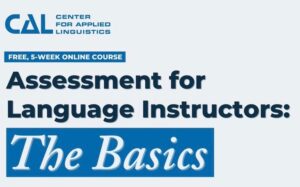
Dates: Offered on an annual basis
Location: Virtual Workshop
Languages: All
Assessment for Language Instructors: The Basics is a five-week online course about assessment. This asynchronous, self-access course is designed for K-16 world language educators and is moderated by staff members from the Center for Applied Linguistics. The course provides world language educators with an understanding of the fundamentals of assessment, and participants received feedback on assignments from course instructors and have opportunities to discuss assessment questions on the course discussion board. Educators working with any grade level and any world language can enroll in the course, and the course is open to pre-service teachers, language instructors, teacher trainers, and administrators.
Workshop: Practical Program Evaluation for Language Teachers
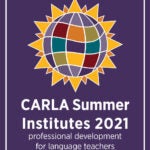
Dates: June 28 – July 16, 2021
Location: Virtual Workshop
Languages: All
This online summer institute provided a comprehensive approach to program evaluation for K-12 world language educators. Using scenario-based and actual participant contexts, the course explored teacher, administrator, and other stakeholder perspectives while learning about theoretical and practical approaches to program evaluation in primary and secondary school contexts.
Workshop: STARTALK: Understanding the ACTFL Guidelines

Dates: May 17 – June 14, 2021
Location: Virtual Workshop
Languages: Chinese, Arabic, Portuguese, Korean, Russian, Hindi, Turkish, Persian, and Spanish
“STARTALK: Understanding the ACTFL Guidelines 2021” was a virtual workshop designed for language instructors from community colleges and other institutions of higher education to understand how to integrate the ACTFL Proficiency Guidelines into standards-based, proficiency-oriented classrooms. Participants are also trained in the use and application of the Modified Oral Proficiency Interview with a certified ACTFL OPI trainer. Due to COVID-19, this workshop, originally scheduled for the summer of 2020, was postponed to summer, 2021. The workshop, spanning four weeks, was conducted entirely online and piloted Catalyst, a new reflection tool for world language educators.
2020
Online ACTFL Oral Proficiency Interview Workshop

Date: August 3-20, 2020
Location: Virtual Workshop
The AELRC sponsored an ACTFL Oral Proficiency Interview workshop for higher education world language instructors working at community colleges, minority serving institutions, and programs of less commonly taught languages. Workshops consisted of synchronous Zoom sessions and an asynchronous online course. Participants learned the basics about the ACTFL Proficiency Guidelines and oral proficiency assessments before exploring strategies for integrating these approaches into their classrooms. Participants then had opportunities to observe and conduct practice interviews with Novice to Superior level speakers. This effort marks the first time that OPI workshops were held online.
AELRC & CAL Webinar: World Language Assessment – Adapting to a Virtual Environment
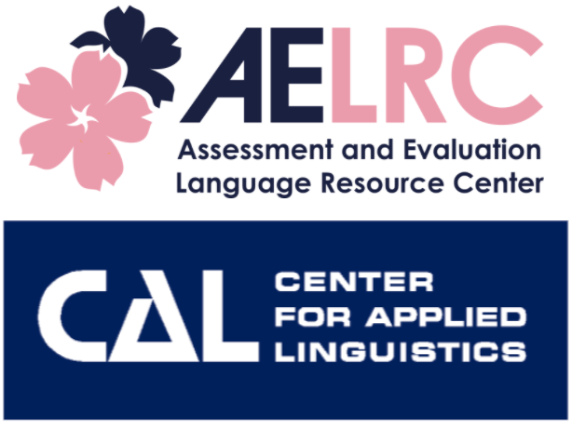
Date: May 1, 2020
Facilitators: Dr. Meg Malone & Dr. Meg Montee
Link to video
As language classrooms transition to virtual environments, educators need practical and effective assessment tools to understand students’ language development. This presentation discussed formative assessment practices that align with online instruction and that provide useful information for teachers and students. The webinar focused on making language assessment both meaningful and practical. The presentation is followed by responses to questions submitted in advance.
2019
ECOLT Pre-Conference Workshop: An Introduction to Using jMetrik for Psychometric Analyses
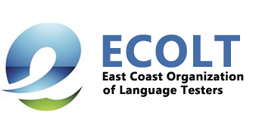
Date: September 12, 2019
Location: Georgetown University
Facilitator: Dr. Troy Cox
jMetrik was developed as an open source computer program for conducting psychometric analysis including classical item analysis, differential item functioning, and item response theory. Since it is free, it is an ideal tool for language assessment professionals to learn as they can take it with them as they progress throughout their career.
Workshop Goals:
- describe a test-taking population,
- score tests with dichotomous and polytomous data,
- calculate descriptive statistics and interpret the results,
- graph test results and visually inspect test data,
- calculate item statistics (both classical and IRT),
- calculate the reliability of a test instrument, and
- conduct a Rasch IRT analysis.
EALTA Summer School: Setting and Maintaining Standards Across Languages
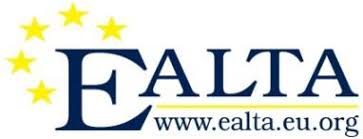
Date: July 15-19, 2019
Location: Paris, France
Facilitators: Meg Malone, Jamie Dunlea, Richard Spiby, Vincent Folny
At the 7th annual summer school organized by the European Association for Language Testing and Assessment, AELRC director Meg Malone, three other facilitators, and attendees discussed the challenges faced by testing programs that involve assessments in more than one language. The workshop also discussed strategies to link exams in different languages to each other and to the Common European Framework of Reference for Languages.
The summer school closed with a day-long colloquium open to the public, on standards setting. The colloquium aimed to fulfill EALTA’s goal of facilitating information exchange between language testing specialists and government officials or policy makers who are involved in commissioning and administering language assessments.
Workshop: STARTALK: Understanding the ACTFL Guidelines

Online introduction: May 2019
Face-to-face workshop: June 13-15, 2019
Location: Georgetown University, Washington, DC
“STARTALK: Understanding the ACTFL Guidelines” was a hybrid workshop designed for language instructors from community colleges and other institutions of higher education to learn how to use and apply the ACTFL Proficiency Guidelines and the accompanying Modified Oral Proficiency Interview with a certified ACTFL OPI trainer. At Georgetown University, each participant had the chance to conduct a practice MOPI in their language of instruction in addition to participating in discussion sessions about incorporating the ACTFL Proficiency Guidelines into their curricula and classroom practices.
Throughout the 2019-2020 school year, workshop attendees will have the opportunity to participate in action-based research on the influence of this workshop on their professional practices.
2018
Workshop: STARTALK: Understanding the ACTFL Guidelines

Online introduction: May-June , 2018
Face-to-face workshop: June 27-29, 2018
Location: Georgetown University, Washington, DC
“STARTALK: Understanding the ACTFL Guidelines” was a hybrid workshop designed for language instructors from community colleges and other institutions of higher education to participate in action-based research on the influence of this workshop on their professional practices. Participants learned how to use and apply the ACTFL Proficiency Guidelines and the accompanying Modified Oral Proficiency Interview with a certified ACTFL OPI trainer!
First, participants reviewed a short, online introduction to the ACTFL Guidelines and the Modified Oral Proficiency Interview and responded to a quiz; activities included opportunities to learn about the ACTFL Guidelines, practice rating speech samples and setting goals for incorporating speaking proficiency activities in their classrooms. Next, participants came to Georgetown University June 27-29 to work with a certified ACTFL trainer to learn to conduct interviews and incorporate proficiency-based activities in their language classrooms. During September, November, and January, participants will respond to short questionnaires and participate in interviews (Zoom or face-to-face) on the influence of this professional development for participants, their students, and their professional growth.
Limited travel funds (up to $600 of pre-approved expenses with appropriate receipts) were available for out-of-town attendees.
Workshop: Understanding Language Development through Formative Assessment
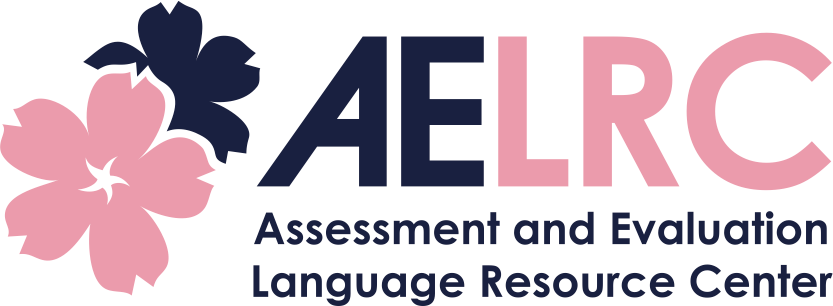
Date: April, 7, 2018
Location: Georgetown University, Washington, DC
Facilitators: Meg Malone, Georgetown University; Meg Montee, Center for Applied Linguistics
Workshop Goal: Build on educators’ knowledge and tools so that they can effectively use classroom-based formative assessment to understand and document their students’ language growth and development.
Workshop Topics:
- Key concepts in classroom-based formative assessment
- Integration of instruction and assessment
- Principles and strategies for formative assessment, with a focus on performance-based tools
- Role of formative assessment in understanding and monitoring student language development
This hands-on assessment workshop covered key concepts in formative, classroom-based language assessment with a focus on how educators can integrate language assessment with daily instruction. The workshop provided educators with a foundational understanding of language assessment as well as principles and strategies for implementing assessment. Participants came away with an understanding of practical ways to use formative assessment to better understand students’ language proficiency and their language development.
2017
ECOLT Pre-Conference Workshop: Developing and using rating scales for writing assessment
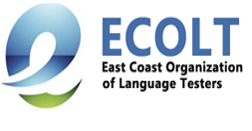
Date: October 19, 2017
Location: Georgetown University, Washington, DC
Facilitator: Sara Cushing, Georgia State University
Overview: In this hands-on workshop, we covered fundamental considerations for developing and using rating scales for writing assessment, both in classroom settings and for large-scale tests. In the first part of the workshop, we discussed the role of the rating scale in writing assessment in terms of scoring validity (Shaw & Weir, 2007) and discussed the advantages and disadvantages of different types of rating scales (i.e., holistic vs. analytic scales). We generated our own criteria for scoring writing for a specific assessment purpose with a particular group of learners, and we experienced different methods of rating scale construction. We also used different published rating scales to evaluate second language writing samples and discussed the benefits and challenges of using different types of scales. We discussed best practices in training, monitoring, and providing feedback to raters in large-scale assessments and we discussed how rating scales can be used in classrooms to both lessen teachers’ marking load, provide useful feedback to students, and make use of self and peer assessment.
Workshop: Useful Assessment and Evaluation in Language Education

Date: May 6, 2017
Location: Georgetown University, Washington, DC
This workshop provided an overview of how to design and implement program evaluation in language programs. The facilitators showed:
- How to plan useful evaluations in language programs
- How to identify evidence, or “indicators”, of program quality, effectiveness, needs, and student learning
- Appropriate use of common tools for collecting evaluation information: interviews, focus groups, and questionnaires
- Time frames and needed capacity for implementing evaluation in language programs and institutions
2016
Workshop: Student Oral Proficiency Assessment

Date: September 24, 2016
Location: Georgetown University, Washington, DC
Instructors: Lynn Thompson (Center for Applied Linguistics), AELRC staff
K-8 world languages instructors and researchers interested in K-8 language learners learned how to use two assessments developed by CAL: the Student Oral Proficiency Assessment (SOPA) and the Early Language Listening and Oral Proficiency Assessment (ELLOPA). Participants received a set of standard tasks, a copy of the CAL K-8 Oral Proficiency Assessment Manual, and a certificate of completion. The facilitator introduced the two assessments, described how to use oral proficiency assessment to support and enhance instruction, and shared first-hand experiences working with the assessments. Lunch and a light breakfast were provided.
Workshop: Useful Evaluation in Language Programs

Date: May 6, 2016
Leaders: Randi Dermo, Todd McKay, Mina Niu, Tyler True
District of Columbia Public Schools instructors learned to plan and implement assessment throughout the curricular cycle in K-12 world languages contexts. French, Italian, Mandarin, and Spanish instructors discussed their experiences, planned assessments for example scenarios, and brainstormed ways to apply formative and summative performance assessment in their own classrooms.
Workshop: Useful Evaluation in Language Programs
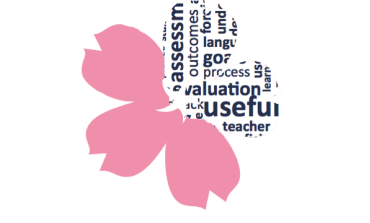
Part of GURT 2016: Useful Assessment and Evaluation in Language Education
Date: March 10, 2016
Leaders: John McE. Davis, Amy Kim, Todd McKay, Mina Niu, Young A Son, Francesca Venezia
This was an introductory workshop meant for language educators new to program evaluation and looking to learn practical techniques to implement in their courses or programs. Participants learned to plan useful evaluations, state effective evaluation questions, identify indicators for evaluation questions, identify appropriate data-collection methods, and initiate ‘next steps’ in the evaluation process.
2015
Workshop: The Basics of Assessment: Applying Proficiency-Based Approaches to the Classroom
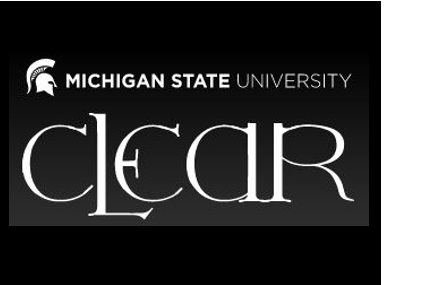
Part of CLEAR Summer Workshops
Date: July 20-22, 2015
Instructor: Margaret Malone
This workshop allowed language instructors to learn about the basic principles of assessment (reliability, validity, practicality and wash back) and how these principles applyed to busy language classrooms. Participants developed proficiency-based tasks to use with their own students.
Workshop: Program Evaluation for Language Teacher Educators
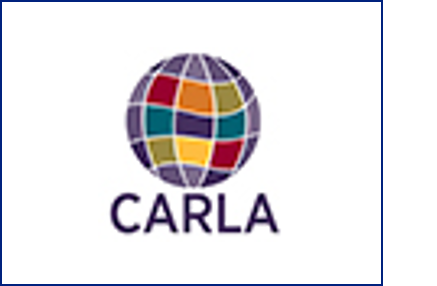
Part of the Ninth International Conference on Language Teacher Education
Date: May 14, 2015
Instructors: Margaret Malone, John McE. Davis
Designed for language educators, this workshop provided an overview of current approaches to language program development and how evaluation can help language instructors maintain program quality and identify areas for growth and improvement.
Workshop: Formative Assessment in Language Classrooms: Enhancing Teaching & Learning
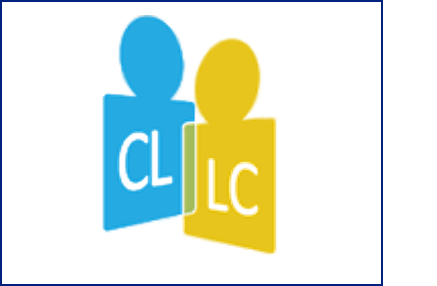
Part of the Conference on Language, Learning, and Culture: Next-Generation Assessment
Date: April 11, 2015
Instructor: John McE. Davis
This workshop provided an introduction to learning-oriented assessment in language education classrooms. Participants learned how formative/learning-oriented assessment techniques can be used to better understand and improve classroom language teaching as well as enhance student learning.

